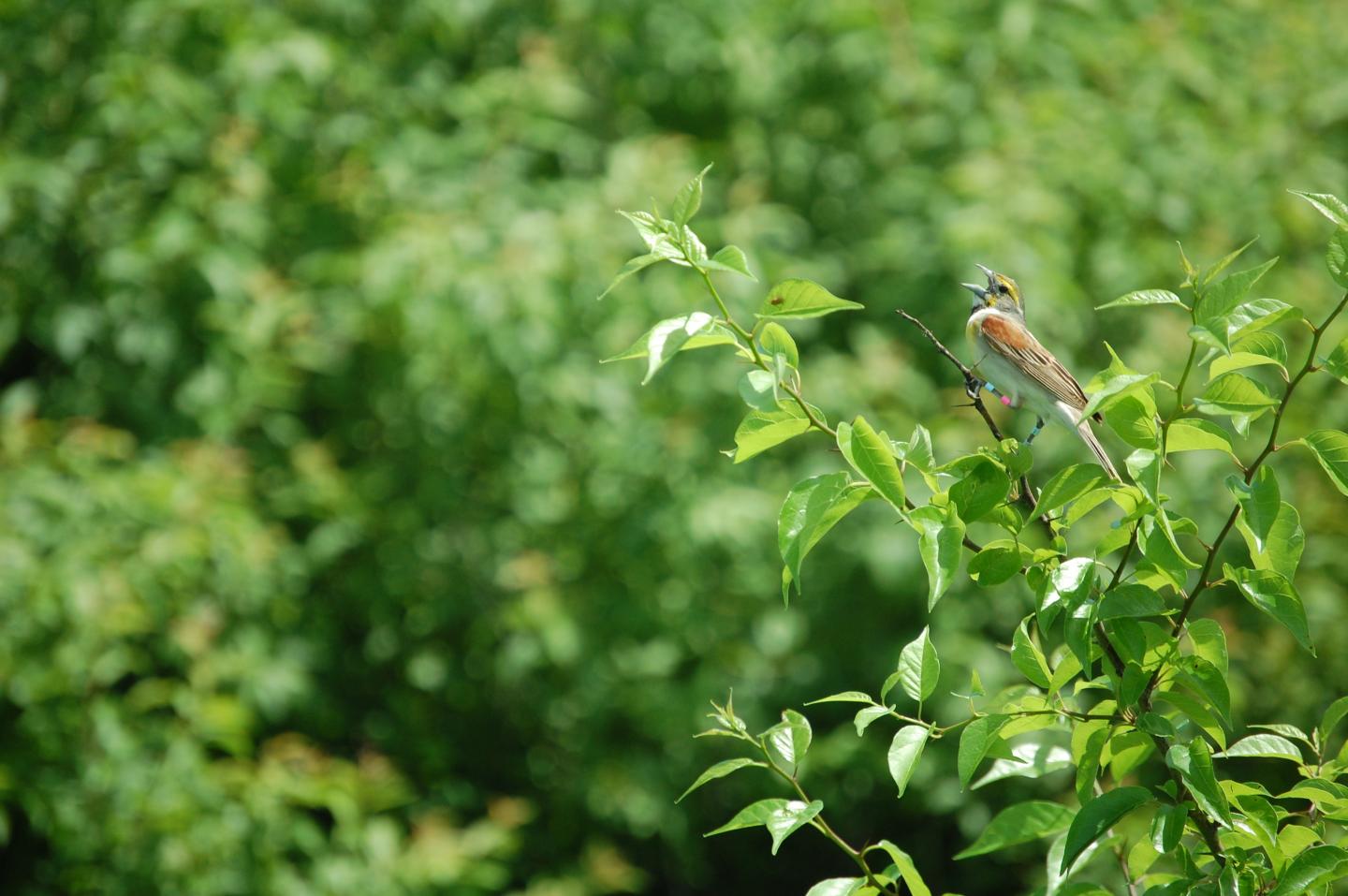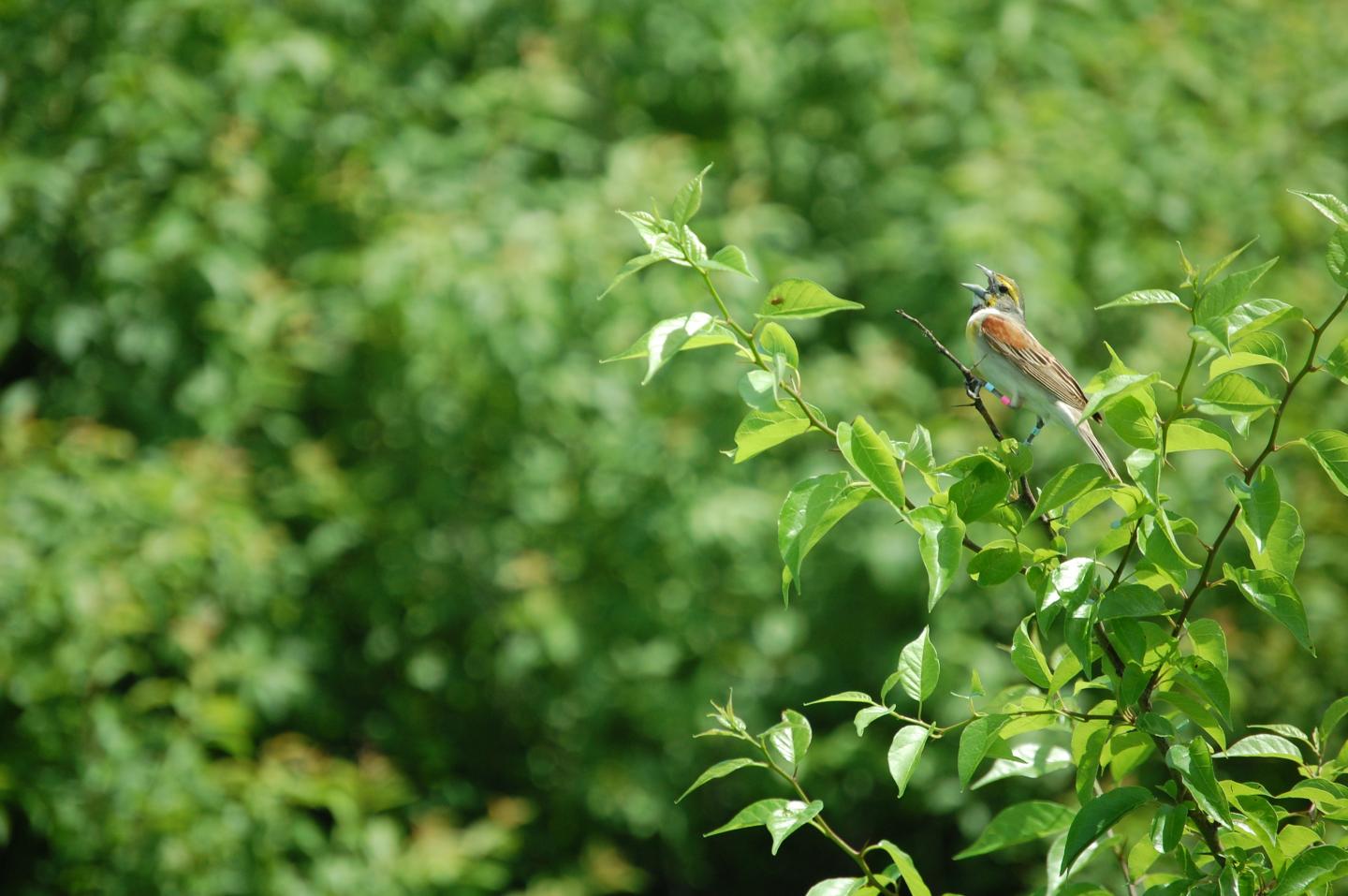
Credit: Scott Nelson
URBANA, Ill. – Baby birds go missing from their nests all the time. Usually, the disappearances are chalked up to predation, but in extremely rare cases, parents have been observed removing their own chicks from their nests. In a new study from the University of Illinois, the mysterious and fatal behavior is documented in dickcissels for the first time.
"In the early days, chicks can't survive outside the nest. They can't regulate their temperature," says Jaime Coon, lead author of the paper and graduate student in the Department of Natural Resources and Environmental Sciences at U of I.
The researchers didn't go looking for birds committing parental infanticide. They had been monitoring dickcissel nests as part of a larger ongoing study examining the effects of fire, grazing, and herbicide application on the grassland-dwelling species. The team trained high-definition video cameras on the nests to monitor diet and feeding behavior.
Coon says these cameras are a huge leap forward for nest monitoring because they provide much greater resolution than traditional monitoring tools. The downside? The batteries only last a few hours. The fact that they caught this rare behavior in such a short timeframe is what makes the discovery so surprising.
In the video, which can be viewed online at https://youtu.be/wIHezuRRdiM, the mother bird can be seen grasping a chick by the leg and carrying it out of the nest. "It's kind of brutal," Coon says.
"Parental infanticide has been suspected in other birds, but it's hard to confirm," she adds. "Dickcissels have identifiable markings, so we were able to confirm it was the female parent that committed the infanticide. We saw her badge – a throat marking – and said, 'that's her nestling.'"
Coon can't definitively explain the behavior, but she says the observation leads to interesting ecological and evolutionary questions and some possible explanations.
"It leads us to wonder why a mother bird would kill her own nestling – it doesn't make sense," she says. "It was five days old, so she had already put in a lot of investment. Why would she get rid of it?
"She could have been stressed, or might not have been able to find enough food. And it's possible it could have been a reaction to being filmed."
Because it was a one-time observation and not the goal of the original study, the researchers can't prove their hypotheses. But the discovery leaves open the possibility that parental infanticide is happening more often than previously thought. And if so, Coon says, ecologists should be taking the phenomenon into account.
"In most nest-monitoring studies, the researchers come back and visit every one to three days. If you lose a nestling in between, you think maybe a snake stopped by and grabbed just one. Predators will do that sometimes," she says. "But if you're assuming it's predation and using that in your analyses, that may be incorrect. It could be parental infanticide."
###
The article, "An observation of parental infanticide in Dickcissels (Spiza americana): video evidence and potential mechanisms," is published in The Wilson Journal of Ornithology [DOI: 10.1676/16-202.1]. Coon's co-authors include Scott Nelson, Iris Bradley, and James Miller, all from U of I. Additional co-author Amy West is affiliated with U of I and the University of South Dakota.
The work was supported by the Louis Agassiz Fuertes Grant from the Wilson Ornithological Society and the Frances M. Peacock Scholarship for Native Bird Habitat from The Garden Club of America. Partial funding for this project was also provided by the Competitive State Wildlife Grants program grant U-D F14AP00012 in cooperation with the US Fish and Wildlife Service, Wildlife and Sport Fish Restoration Program; and by the USDA National Institute of Food and Agriculture, Hatch project [875-918].
Media Contact
Lauren Quinn
[email protected]
217-300-2435
@ACESIllinois
http://aces.illinois.edu/
Related Journal Article
http://dx.doi.org/10.1676/16-202.1





